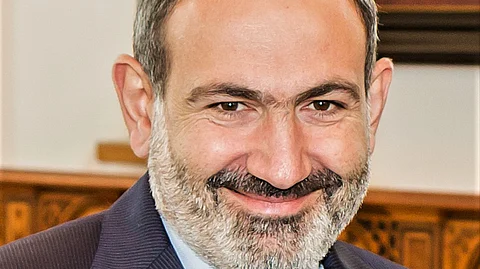

On Wednesday, Armenian Prime Minister Nikol Pashinyan announced that Armenia is more likely to withdraw from the Collective Security Treaty Organization (CSTO) than to remain a part of it, signaling a continued pivot away from Russian influence.
“It is more likely that we will withdraw from the CSTO than come back to being a member of this organization,” Pashinyan said at a press conference, reiterating his government’s dissatisfaction with the Russia-led security alliance.
The CSTO is a military bloc consisting of former Soviet republics, including Russia, Belarus, Kazakhstan, Kyrgyzstan, and Tajikistan. Armenia officially froze its participation in 2024, though it had not actively engaged with the organization since 2022.
Pashinyan’s statement builds upon earlier remarks made in June 2023, when he told Armenia’s Parliament, “We will leave [the CSTO]. We will decide when to leave.”
Since coming to power during a 2018 color revolution, Pashinyan has increasingly sought to orient Armenia toward Western institutions such as NATO and the European Union, moving the country away from its traditional alignment with Russia and other post-Soviet structures. In pursuit of these goals, Armenia has even begun cooperation with its historic adversaries Turkey and Azerbaijan.
Despite repeated public condemnations of the CSTO—including calling it a “threat” to Armenia’s national security—Pashinyan has yet to formally exit the bloc. Analysts suggest his hesitation stems from strategic caution: under CSTO obligations, Russia is committed to Armenia’s defense in the event of a renewed conflict with Azerbaijan. The West, by contrast, has yet to offer Yerevan any formal security guarantees.
The dramatic realignment in Armenian foreign policy has led some observers to draw comparisons with Ukraine after 2014 or Georgia between 2003 and 2008—both of which experienced heightened tensions and eventual conflict with Russia after turning westward.
Last year, Kremlin spokesperson Dmitry Peskov issued a veiled warning to Armenia, saying, “We only hope they do not choose the same path of no alternatives that Kiev once did.”
As geopolitical tensions rise across the South Caucasus, Armenia’s next steps regarding the CSTO could have far-reaching consequences for the region's balance of power.